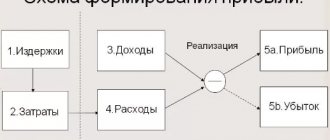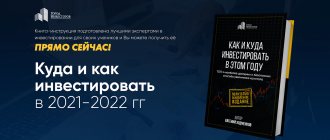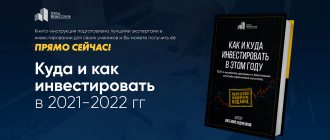From this article you will learn:
- What is a real estate investment trust?
- Profitability of real estate mutual funds
- Subjects of real estate mutual funds
- Types of Real Estate Mutual Funds
- How to become a shareholder?
- Is it profitable to invest in real estate mutual funds?
- Foreign real estate funds REIT - an alternative to closed mutual fund
What is a real estate investment trust?
A real estate mutual fund is a fund that collects funds from investors and invests them in commercial or residential real estate. In fact, he provides intermediary services on the basis of a trust management agreement.
In Russia, real estate mutual funds are most often created to finance a specific object or group of objects, for example, a new shopping center or residential building. The main shareholders of the fund are large investors and developers, for whom participation in the mutual fund is an alternative form of direct investment. The capital of a real estate mutual fund can amount to several hundred million rubles.
In exchange for cash, shareholders receive fund securities - units . The value of the unit varies depending on the price of the real estate controlled by the fund. If real estate increases in price, the value of the share increases. The presence of rental income from the rental of the property also affects the share, since the amount of funds in the fund’s accounts increases.
The specificity of Russian real estate mutual funds is that all funds of this type are closed-end funds (closed-end mutual funds). This means that you cannot enter and exit the fund at any time, as in open ones. The shares are transferred to investors upon formation of a closed-end mutual fund, and remuneration is paid upon its dissolution.
The lifespan of a closed-end mutual fund is several years - on average from 3-5 to 7-10 years, depending on the investment subject. As a rule, if a mutual fund invests in the construction of a building, then its lifespan is longer than that of a rental fund. In short, the life of the fund is tied to the period of sale of the property.
It is important to understand that the owners of the fund’s property are its shareholders, and not its managers or organizers. The management company (MC) is engaged only in the selection of objects for investment and management, for which it receives an appropriate remuneration - a certain percentage of the net asset value.
In addition, the infrastructure of the real estate investment fund consists of:
- auditor – controls the correctness of reporting and the general legality of the fund’s work;
- appraiser – evaluates NAV by analyzing objects owned by the fund
- registrar – records who owns and how many shares (maintains a register of shareholders);
- depository – stores shares of closed-end mutual fund participants in special accounts.
Costs for capital management and infrastructure range from 1% to 5% of NAV annually. To earn more, all other things being equal, it is better for an investor to choose real estate funds with lower commissions.
Finex FXRE ETF
FXRE is the first ETF in Russia that invests in American real estate funds (REITs). REITs (Real Estate Investment Trusts) are public funds that own and manage real estate for the purpose of generating income. At least 90% of income is distributed to shareholders through the payment of dividends.
This type of fund appeared in the United States a very long time ago and now the market offers a wide variety of REITs that own various types of real estate.
FXRE presents 9 types of REITs, 129 securities. For example, American Tower is the main operator of wireless communications infrastructure in the United States, Simon Property is the largest owner of shopping centers, and Digital Realty invests in data centers.
The commission for ETFs is 0.6% per annum. Although REITs are considered dividend-paying vehicles, the fund does not make distributions. Dividends received from companies are reinvested. By the way, now the average yield of similar American ETFs is 3% per annum in dollars.
But Finex has its own business card. The fund is registered in Ireland, which provides tax benefits. Typically, dividends from REITs are taxed at 30%, but for FXRE it is only 15%.
Profitability of real estate mutual funds
It is impossible to predict in advance what the profitability of a particular closed real estate mutual fund will be. Of course, the management company and the fund’s management determine the approximate capital gain, but much depends on third-party factors, including the market situation.
Unfortunately, the managers of closed mutual funds do not disclose information about their profits / losses (this data is available only to the investors themselves), so it is not even possible to derive the real average profitability.
But you can indirectly estimate the profitability - based on the available data and the dynamics of the cost of square meters. On average, investments in real estate through closed-end funds give investors in Russia from 8% to 20% per annum excluding taxes, abroad - from 6% to 8% in foreign currency.
General provisions
Policy for the processing of personal data in the Limited Liability Company "QBiF Asset Management"
Asset Management" (hereinafter referred to as the Policy) defines the basic principles, goals, conditions and methods of processing personal data, lists of subjects and personal data processed in the Limited Liability Company "QBEF Asset Management" (hereinafter referred to as KBF UA LLC), the functions of LLC " KBF UA" when processing personal data, the rights of personal data subjects, as well as the requirements for the protection of personal data implemented by KBF UA LLC.
The policy was developed taking into account the requirements of the Constitution of the Russian Federation, legislative and other regulatory legal acts of the Russian Federation in the field of personal data.
Subjects of real estate mutual funds
The following may act as subjects of a real estate mutual fund:
- residential real estate - apartments, houses, penthouses, townhouses, etc.;
- commercial real estate - warehouses, offices, shops, factories, shopping centers, hotels, etc.;
- land plots (with and without buildings);
- unfinished objects;
- renovated property.
The purchase and sale of objects is carried out on both the primary and secondary markets. One mutual fund can own one or several objects.
Closed-end mutual fund VTB Rental income
The fund invests in commercial real estate. At the moment, the portfolio includes warehouses purchased from PNK, as well as part of the Skylight business center, which includes office and utility premises.
Among the warehouse tenants are the largest distributors and logistics companies. Office space is leased by Mail, CSL Behring and Stryker.
The fund makes payments once a quarter, and also re-evaluates the value of objects every six months, which is reflected in the price of the share. At the end of 2022, the management company expects the return on investors to be 8.5% per annum.
Closed-end mutual fund has normal liquidity, there are orders in the order book and a market maker. One problem - the price of one share is approximately 315 thousand rubles.
Types of Real Estate Mutual Funds
Depending on the area of work, the following categories of real estate mutual investment funds are distinguished:
- construction – created specifically for the construction of an object and its subsequent resale to a large investor (or a number of investors);
- development funds – funds are engaged in the purchase and resale of real estate;
- land - similar to development ones, but acquire and resell land plots, specialize in transferring one category of land to another;
- rental – created for the purchase of real estate and renting it out for systematic profit;
- mixed - combine 2-3 directions.
A separate form is closed-end mutual funds investing in other mutual funds and ETFs. These funds do not manage real estate, but securities, i.e. are "funds of funds". The threshold for entry into such mutual funds is, as a rule, lower than into large closed ones, which allows investors with small capital to enter this market.
Classification
We will look at two classifications of REITs. The first of them is based on dividing funds by type of income received:
- Equity REIT or equity. The most common type. The main income comes from renting out real estate; part of the profit may come from the sale of assets. A simple example: the fund bought or built an office building, leases the premises, and distributes the income among shareholders.
- Mortgage REIT or mortgage. The fund does not invest investors' money in specific properties, but buys mortgages. The main income will come from borrowers' mortgage payments.
Each type of trust has its own risks. In addition to the classification discussed above, all funds are divided according to the types of real estate in which they invest and manage:
- Data centers – data centers, server storage premises.
- Infrastructure – infrastructure facilities: communication lines, electrical networks, etc.
- Residential – residential apartments.
- Timberlands – forests, i.e. facilities for harvesting and processing wood.
- Lodging/Resorts – hotels, tourist centers.
- Retail – trade objects: shops, shopping centers, etc.
- Health care – healthcare facilities: hospitals, medical laboratories, clinics.
- Self-storage – self-service storage facilities.
- Industrial – industrial facilities, warehouses.
- Office – office buildings.
- Specialty – various specific objects: theaters, cinemas, casinos, other entertainment facilities.
- Diversified – diversified funds that invest in objects from different sectors.
Complete information about current strategies that have already brought millions of passive income to investors
How to become a shareholder of a real estate fund?
There are currently more than 500 real estate mutual investment funds registered in Russia. Most of them are created for a limited circle of investors and for a specific project, so becoming a shareholder of such funds is not easy.
In addition, a significant part of closed-end mutual funds are created for qualified investors and imply an entry threshold of several million rubles.
It will not be easy for a novice investor not only to raise the required amount, but also to correctly assess the risks. This requires experience and a certain understanding of the situation.
There are three ways to enter a real estate mutual fund:
- at the formation stage - most real estate funds allow you to enter your capital only in this way;
- during the issue of additional shares, which happens extremely rarely and, as a rule, shares are sold to existing investors;
- on the secondary market - a small part of real estate mutual funds are traded on the Moscow Exchange (usually in the over-the-counter section).
The last method is the most realistic chance to become the owner of a share in a closed real estate mutual fund. You just need to take into account that in most cases the liquidity of such funds is practically zero - a maximum of 1-2 transactions take place per month, and sometimes there are no transactions for years. It is easier to reach an agreement with existing shareholders and conduct a transaction through the exchange than to wait for the share to become available for free sale at a price that is favorable to you. Reklama: Greitieji kreditai internetu, refinansavimas, finansiniai patarimai, paskolos nedirbantiems
Measures taken by KBF UA LLC to ensure the fulfillment of the operator’s duties when processing personal data
Measures necessary and sufficient to ensure that KBF UA LLC fulfills the operator’s obligations provided for by the legislation of the Russian Federation in the field of personal data include:
1) appointment of a person responsible for organizing the processing of personal data at KBF UA LLC; 2) adoption of local regulations and other documents in the field of processing and protection of personal data; 3) obtaining consents of personal data subjects for the processing of their personal data, except for cases provided for by the legislation of the Russian Federation; 4) ensuring separate storage of personal data and their material media, the processing of which is carried out for different purposes and which contain different categories of personal data; 5) storage of physical media of personal data in compliance with conditions that ensure the safety of personal data and exclude unauthorized access to them; 6) carrying out internal control of compliance of PD processing with the Federal Law “On PD” and the regulatory legal acts adopted in accordance with it, requirements for the protection of PD, this Policy, local regulations of KBF UA LLC; 7) other measures provided for by the legislation of the Russian Federation in the field of personal data.
Is it profitable to invest in real estate mutual funds?
pros
Overall, a real estate mutual fund is a vehicle for experienced investors. In their hands, it is able to bring significant profits due to its advantages:
- you do not need to independently search for investment objects and manage them - this is done by the management company;
- there is no need to fill out a lot of documents when purchasing real estate - just buy a share of the fund;
- lower entry threshold compared to directly purchasing square meters;
- the ability to distribute risks between several funds;
- Some real estate mutual funds pay rental income, which allows the investor to create a stable cash income.
Minuses
But you have to take into account the disadvantages:
- it is difficult to become a shareholder;
- low liquidity of fund shares, difficult to exit the investment;
- long waiting period for the dissolution of a mutual fund – from 5 to 15 years;
- profitability is not always predictable and depends not only on real estate prices, but also on many other unrelated factors;
- fairly high commissions - from 1% to 5%;
- Not all management companies are good, and you can lose money due to poor management.
For a newcomer to the real estate market, there are additional disadvantages: a high entry threshold, the inability to adequately assess risks, and the unavailability of information on a specific fund until the investor purchases a share.
Therefore, it is better for a novice investor to consider alternative ways to invest in real estate, for example, through REITs.
Advantages of closed mutual funds
- High reliability.
The Bank of Russia and the specialized depository strictly control the disposal of the property of the closed mutual fund. The activities of the fund itself are regulated by the state. The fund's assets are managed by a professional participant in the securities market - a management company. Also involved in the activities of closed mutual funds are an appraiser, a registrar and an auditor.
- Low entry threshold.
The cost of shares is several times lower than the price of real real estate: the investor does not need to have millions of rubles in his account, usually we are talking about several hundred thousand.
- Transparency.
The management company is required to regularly publish fund reports so that the investor understands what is happening with his money.
- The fund is not liable for the debts of investors or the management company.
If one of the shareholders or the management company experiences financial difficulties, the fund’s funds will remain untouched. The capital you invested will not be burned.
- Possibility of regular payments.
Some funds pay interim income to shareholders during their term.
- Tax benefits.
Income from asset management received within the framework of a closed-end mutual fund is not subject to taxation and can be fully reinvested. This further increases profitability. The shareholder pays income tax only after the share is redeemed or sold or interim income is received.











